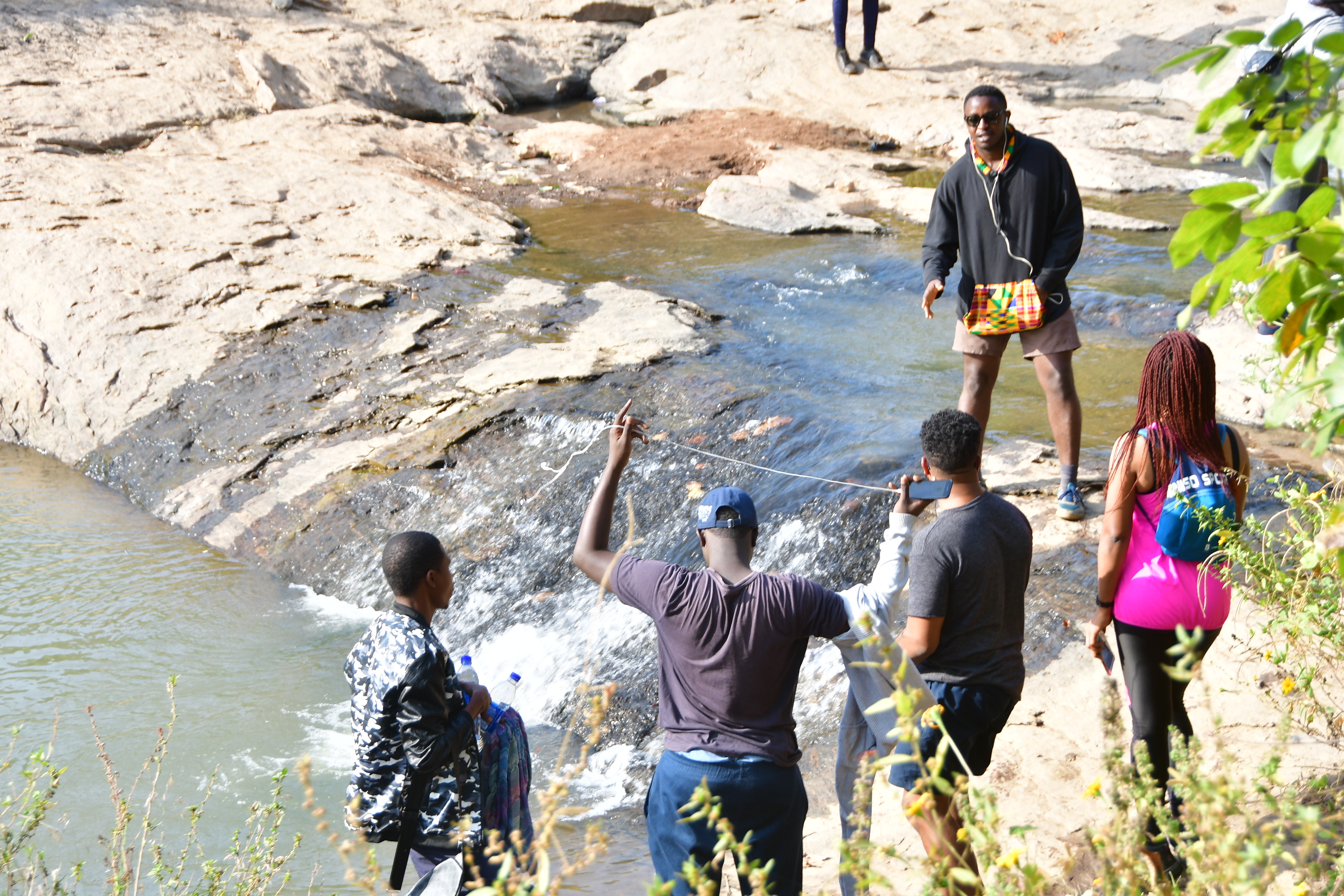
Youth tourism has become an increasingly vital part of global travel, with millions of young people traveling each year to experience different cultures, learn new languages, volunteer, work, or study. In 2023, the global youth travel market was valued at over $300 billion, with projections indicating continued growth. Young travelers are not just tourists; they are keen to immerse themselves in local lifestyles, participate in physical activities, and engage with others to broaden their knowledge.
Tourism is crucial to economic growth, job creation, and regional development. According to the National Bureau of Statistics, Nigeria’s tourism sector contributes approximately 4.5% to the nation’s GDP. Youth travel is a significant part of this market, representing a vital resource for innovation, change, and unity within the country.
For years, the Nigerian government has overlooked the tourism sector. However, the youth are now stepping in, innovating daily to make the industry attractive to both local and foreign tourists. Groups like Tha Outdoor Tribe Abuja, Happy Trails Abuja, Nigeria’s Hiking Society, and Lagos Urban Adventures are leading the charge, discovering new hiking trails in locations such as Karu waterfall, Ushafa hill and Dam in FCT, Obudu Mountain Resort in Cross River State, and Idanre Hills in Ondo State. Despite the country’s insecurity challenges, these efforts continue to thrive.
Read About “CHIMAMANDA NGOZI ADICHIE: INSPIRING A NEW GENERATION OF DIGITAL STORYTELLERS”
Nigerian youth have consistently devised means to survive, positively promote the country, and generate significant revenue. The entertainment industry, particularly music and comedy, serves as a prime example. Comedians like Ali Baba, Gordons, Oke Bakassi, AY, Basket Mouth, and Bovi, among many others, have redefined Nigerian comedy, making it a global phenomenon. In 2022, the Nigerian music industry alone generated over $85 million in revenue, according to the International Federation of the Phonographic Industry (IFPI). Artists like 2Baba, Tiwa Savage, Burna Boy, Wizkid, Rema, Olamide, Tems, Ayra Starr, and many more have reshaped the global perception of Nigeria, leading to international recognition and respect. This success has also created millions of jobs within the country.

Beyond music and comedy, other forms of art are contributing to Nigeria’s economy. Sculptors, painters, curators, and textile artists like Salome Dike Chukwumerije, and many others are playing crucial roles in promoting Nigeria’s cultural heritage. The spoken word scene, too, has gained momentum, with young artists using their voices to tell stories that resonate globally. The use of dye and tiles in textile and ceramic art has also been pivotal in showcasing Nigeria’s rich cultural history, turning traditional crafts into contemporary art forms that attract both tourists and collectors.
As John F. Kennedy famously said, “Ask not what your country can do for you.” Nigerian youth have embodied this spirit, taking the initiative to build a better Nigeria. The political landscape is also changing, with young, visionary leaders emerging. In the 2023 general elections, for example, the average age of elected representatives dropped to 39, a significant shift from previous years, indicating a move towards a more youthful and dynamic leadership. Notably, the youngest Nigerian representative was elected in Niger, Kaduna.
Nigeria is blessed with diverse landscapes, from the swampy coastal lands of the Niger Delta to the thick forests of Cross River and the savannas of Kano. The country boasts numerous parks and game reserves, such as Yankari National Park in Bauchi State and Gashaka Gumti National Park in Taraba State, where wildlife thrives in their natural habitats. The hills of Mambilla Plateau, the rocks of Aso Rock in Abuja, the mountains of Jos Plateau, and the Ikogosi Warm Springs in Ekiti State are just a few of Nigeria’s natural endowments waiting to be discovered.
Nigeria’s rich culinary heritage, featuring dishes like jollof rice, pounded yam, fufu, amala, semo with egusi soup, afang soup, edikang ikong, okro, and suya, adds to the country’s appeal as a tourist destination. Food tourism is a growing trend, and Nigeria’s vibrant food scene has the potential to attract international visitors eager to taste its diverse flavors.
Read about “APPRECIATING ART IN EVERYDAY LIFE”
If both state and federal governments invest seriously in this sector, Nigeria’s cultural heritage, tourism, and arts could engage, inform, and entertain audiences globally. The power of these industries to change lives and communities is immense, with practical contributions to development, sustainability, and employment. According to the World Travel & Tourism Council, tourism has the potential to create over 2 million jobs in Nigeria over the next decade if adequately supported.
However, for tourism to truly thrive, the government must address the issue of insecurity. The activities of armed bandits, kidnappers, and other forms of criminality threaten not only the lives and properties of citizens but also the development and growth of the tourism industry. We urge the government to take decisive action to secure Nigeria, ensuring a safe environment for both locals and tourists alike.





